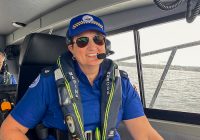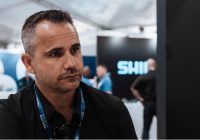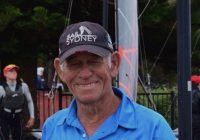Marine Business News spoke to Commissioner Alex Barrell ESM ahead of two important industry events.
Marine Rescue NSW Commissioner Alex Barrell is a highly respected leader in Australia’s maritime safety and emergency services community, with a distinguished career spanning more than 30 years.
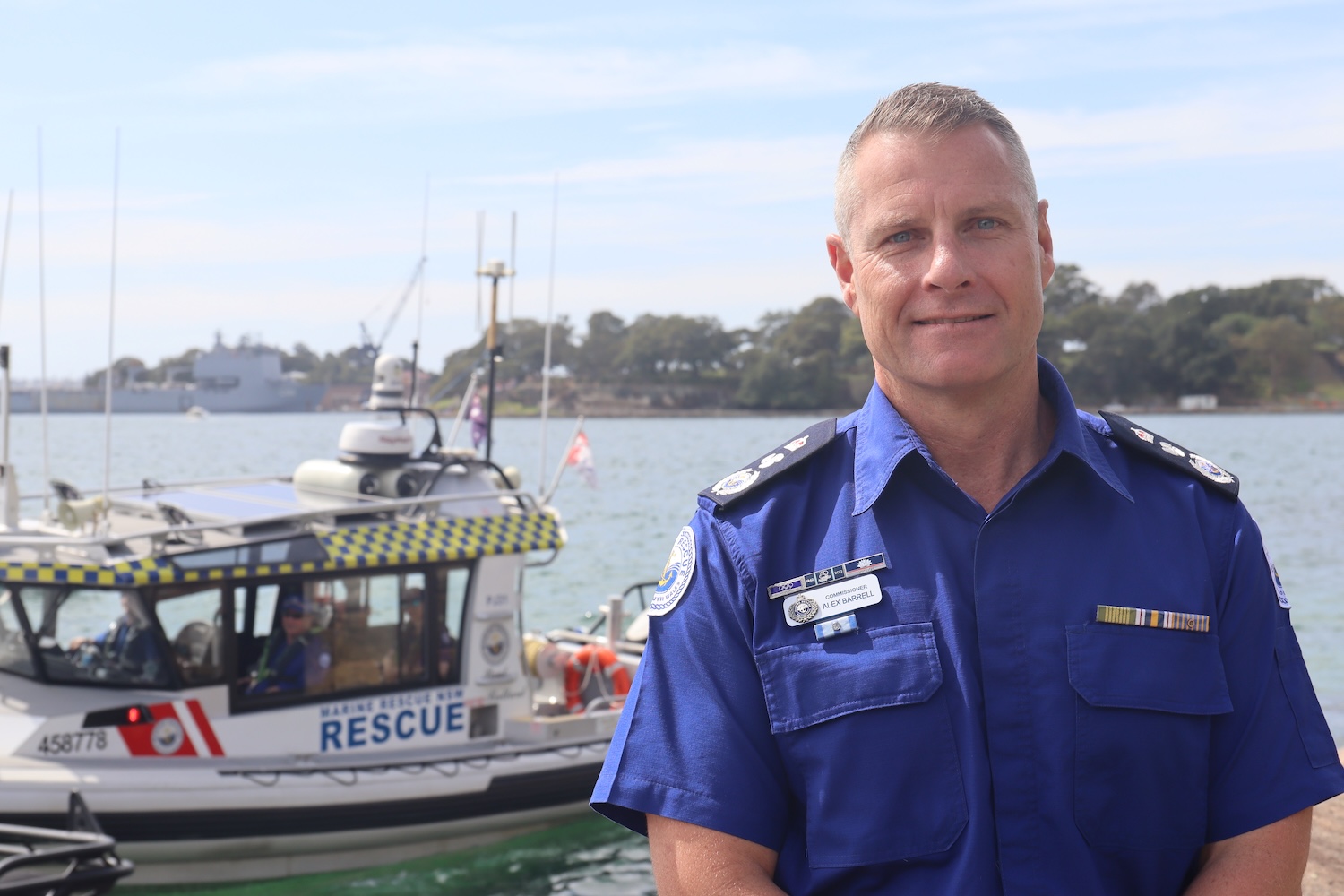
Alex Barrell ESM
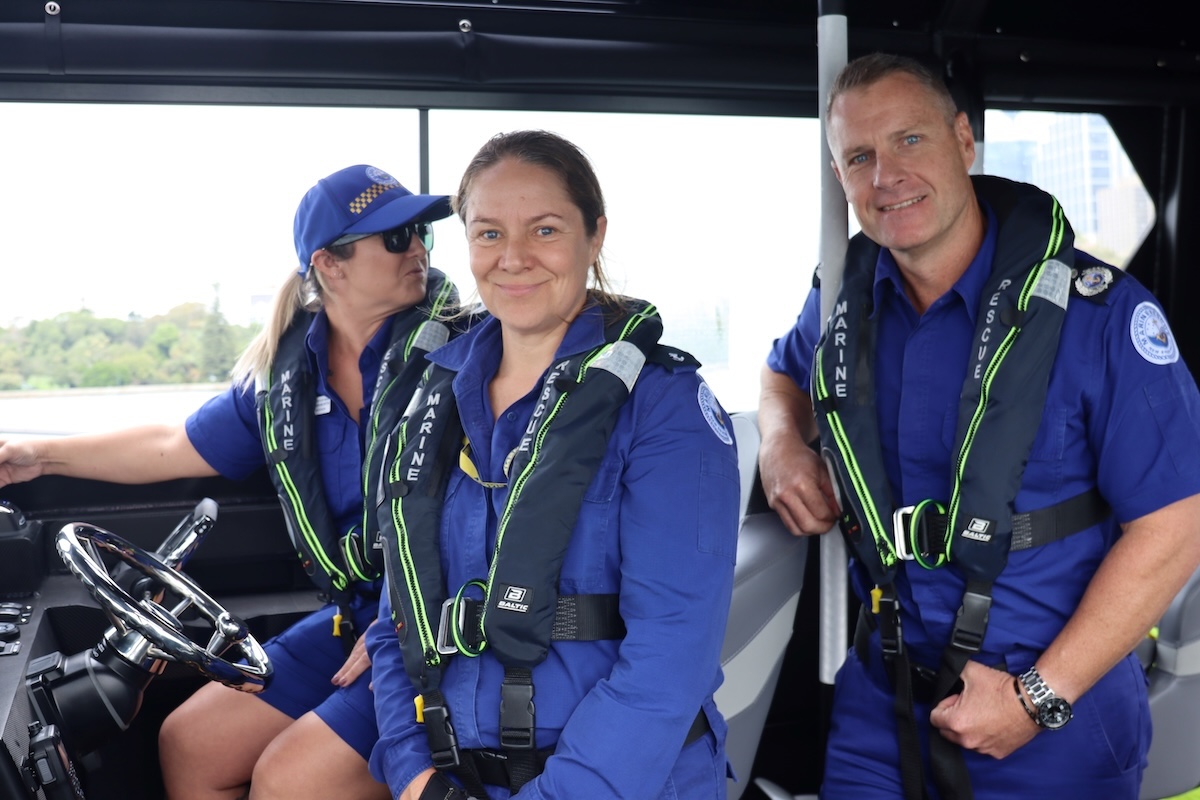
Marine Rescue NSW volunteers Julie Barkworth and Jacqui Foord with Alex Barrell
Currently serving as the Commissioner and Chief Executive Officer of Marine Rescue NSW, he brings deep operational expertise shaped by decades of frontline service, including over 20 years in the NSW Police Force and key roles in Surf Life Saving (volunteer), Transport for NSW (Maritime), and the Marine Area Command. Commissioner Barrell also serves as a board member of the International Maritime Rescue Federation (IMRF) and is the only Australian trustee on the global board, as well as a representative on its Asia Pacific Regional Centre of the IMRF.
In recognition of his lifelong commitment to maritime rescue and community safety, he was awarded the prestigious Emergency Services Medal (ESM) in the 2025 King’s Birthday Honours List.
This August, Commissioner Barrell will host two significant international gatherings under the IMRF banner in Sydney:
22–24 August: Women in SAR training course, held on Sydney Harbour and facilitated from Marine Rescue Middle Harbour – the first time this course will be held outside the Northern Hemisphere.
25–26 August: IMRF Regional Seminar, to be hosted at the Cruising Yacht Club of Australia, featuring workshops and discussions on mental health, climate change, gender diversity, emerging technology, and more within the maritime SAR community.
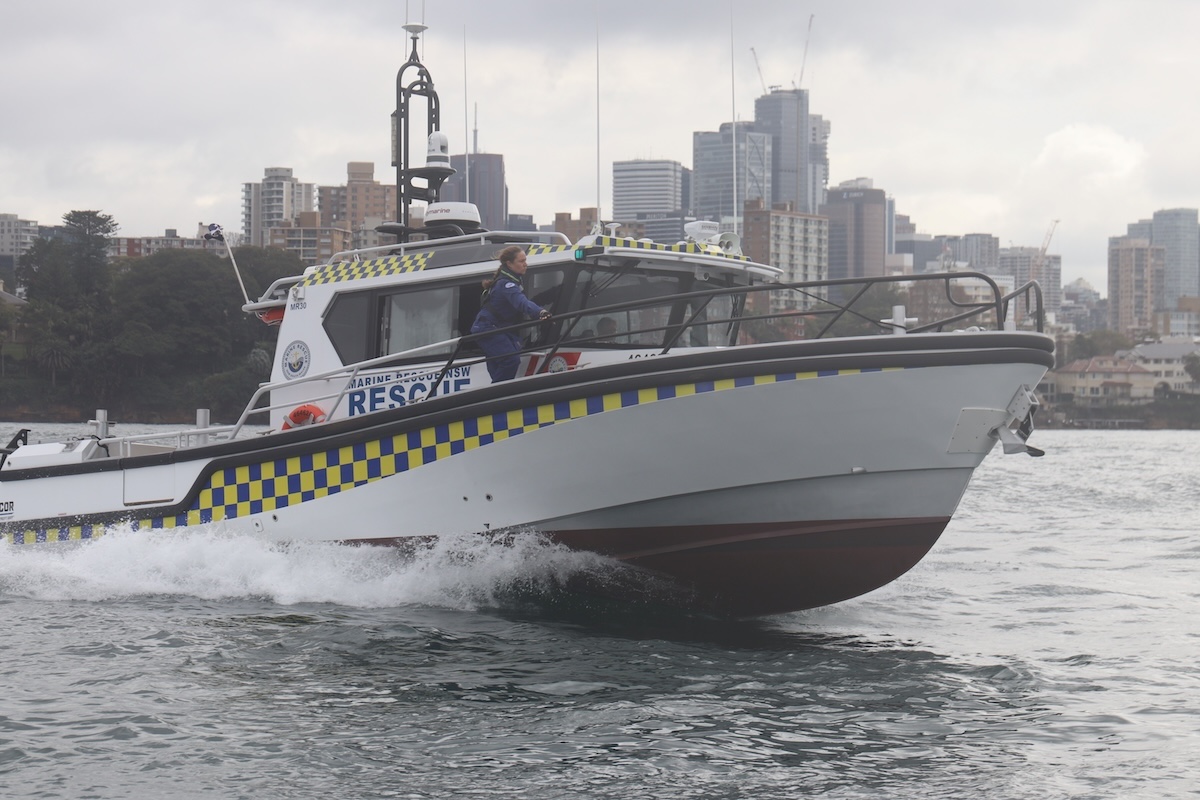
Marine Rescue 30 on Sydney Harbour
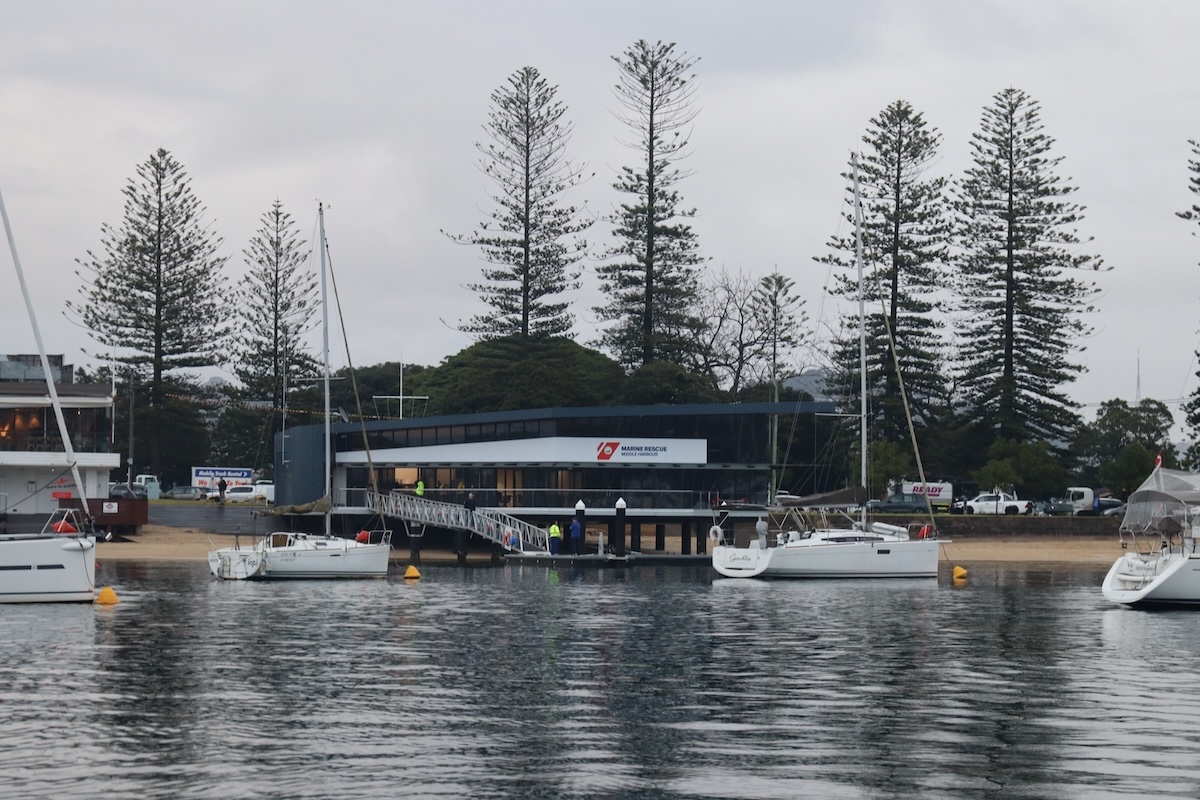
Marine Rescue Middle Harbour base
This is what he had to say.
Commissioner Barrell, you’ve had a remarkable journey across multiple emergency services agencies. What personal or professional experiences have most shaped your approach to leading Marine Rescue NSW?
Having started as a volunteer surf life saver and taking that passion for helping others, particularly in the marine environment to my professional career is something I’ve always been grateful for. In one way or another I’ve been involved for over 30 years in, on or around the water. Being able to take that experience and operational background into leading Marine Rescue NSW gives me a greater appreciation of the wonderful work our volunteers do each day making NSW a safer place to go boating.
How has your background in Surf Life Saving, NSW Police Marine Area Command, and Transport for NSW Maritime influenced your leadership of Marine Rescue NSW?
Being able to work with such dedicated staff and volunteers is a real privilege. As an organisation we have come such a long way since we came together as one organisation in 2009, and a real focus of mine is the continued professionalisation of Marine Rescue NSW, not in terms of paid services but in terms of improved capability and professional service delivery.
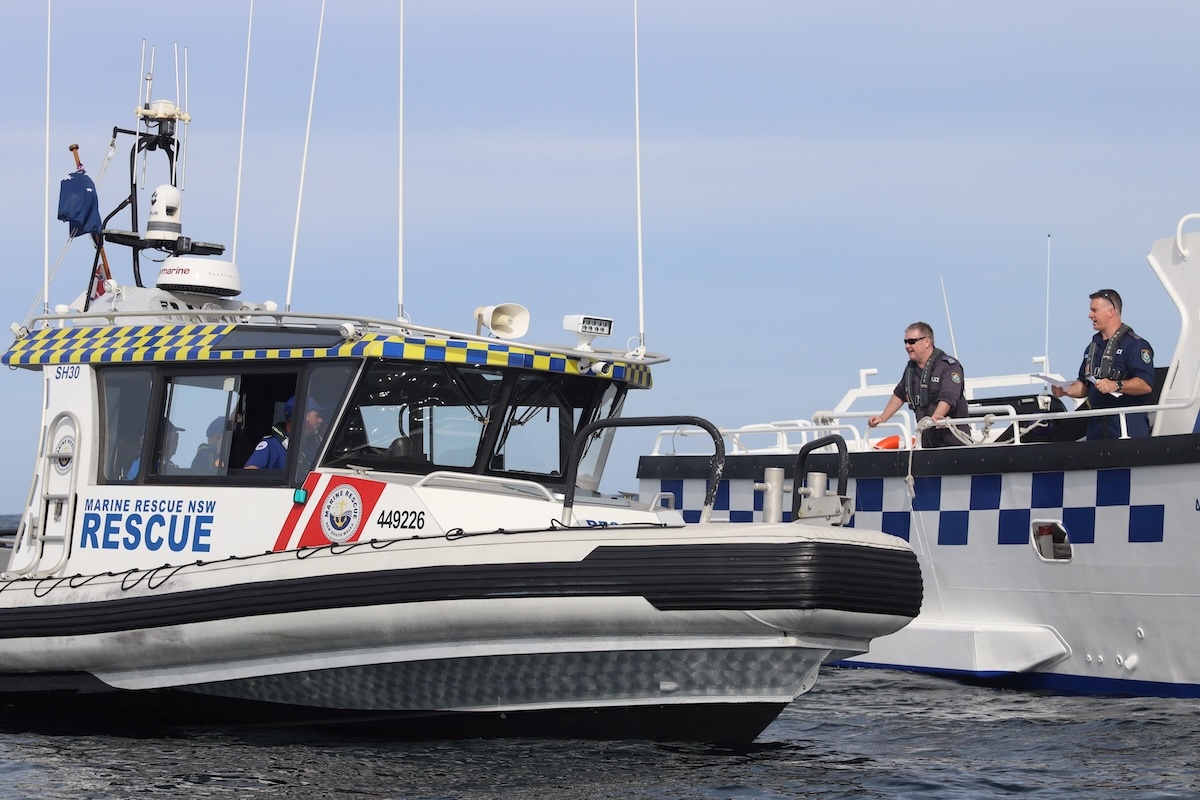
Marine Rescue Shellharbour and NSW Water Police
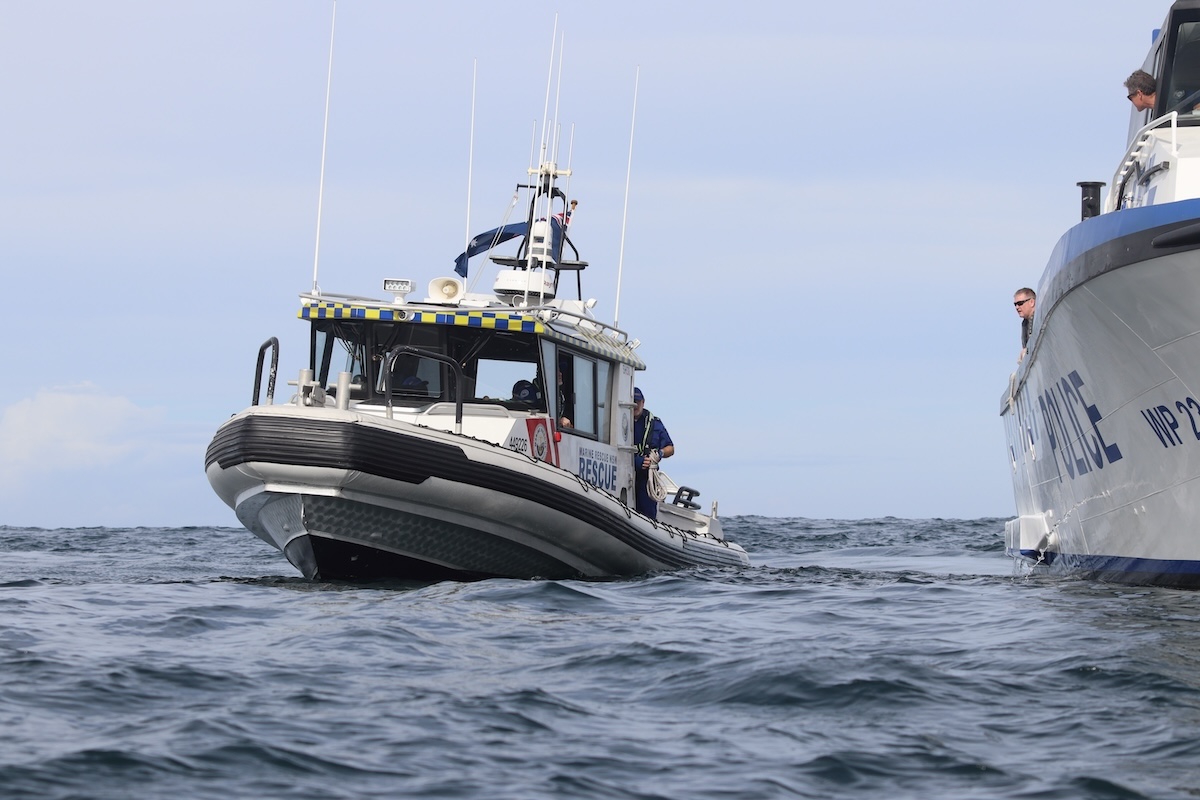
Marine Rescue Shellharbour and NSW Water Police
This is the first time the IMRF’s Women in SAR training is being held outside the Northern Hemisphere. Why was Sydney chosen as the host city?
The IMRF has always had a strong presence in Europe and the Northern hemisphere. In fact, it dates back over 100 years. The IMRF has been looking for avenues to expand membership and awareness of the programs it runs and what better way to do that by running the event on Sydney Harbour. Enhancing female participation in maritime rescue is a real focus of the IMRF and Marine Rescue NSW and we hope by running the event here we can draw attention to the contribution women are making in this sector and at the same time attract more women to get involved.
What do you hope participants – especially the volunteer from Marine Rescue NSW – will gain from this training?
I hope that all the participants will walk away with a sense of achievement, and new friends that can support them on their journey in the years ahead.
How important is it to support and elevate women in operational maritime roles such as coxswains and SAR leaders?
Put simply, it’s vital. It doesn’t matter whether it is in paid or volunteer positions we need more women seeing the maritime rescue sector as achievable, attractive and rewarding, and that regardless of gender everyone can make a sustained contribution. As the leader of Marine Rescue NSW it is important that we work hard to better understand the barriers and limitations preventing women from joining up, and work to remove them. Pleasingly we are seeing more women looking to join Marine Rescue NSW and more stepping into leadership roles but we have more to do.
Could you speak to the significance of having leadership development occur both on the water and in the classroom?
Providing exposure for the participants to both on-water and classroom scenarios is designed to test them in different situations and provides the opportunity to work as a team. And let’s face it, you can’t come to Sydney without getting out on the harbour.
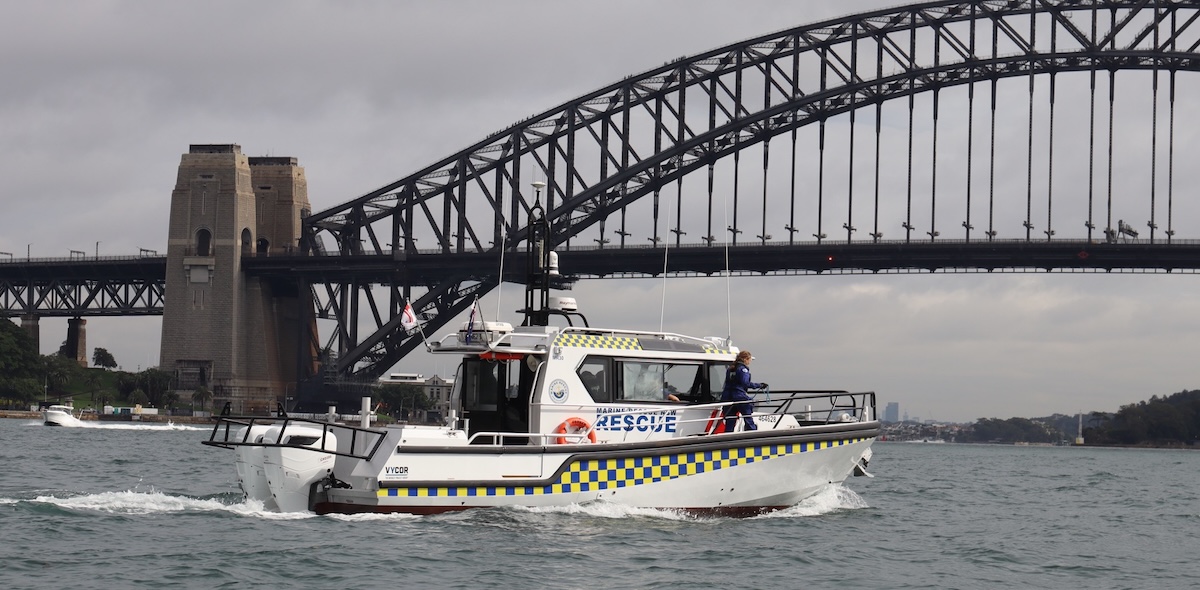
Marine Rescue 30 on Sydney Harbour
The upcoming IMRF Regional Seminar at the CYCA promises rich discussion around climate change, mental health, and emerging technology in SAR. What key outcomes are you hoping for?
The seminar is a great opportunity to bring various organisations and jurisdictions together whether paid, volunteer, government and non-government. We hope that the event provides the opportunity to share ideas, gain knowledge and learnings from Australia and overseas. While globally we all share similar practices, we don’t often get the chance to come together and share new ideas and discuss the challenges facing the sector.
How has the regional SAR community evolved in recent years, and how will this seminar help shape its future direction?
We have longstanding arrangements in Australia which are tried and tested. Technology is changing, jurisdictions have different abilities to embrace this change and it is important that where possible we continue to apply a consistent approach into the future. Technology in many ways has improved safety outcomes but it has also meant a greater trust and reliance on it. I’m hoping the seminar provides an opportunity to discuss what lies over the horizon, what challenges are coming and how do we best position to deal with them when they arrive.
You’ve long championed the professionalisation of volunteer marine rescue. How does this seminar support ongoing training, innovation, and collaboration?
Nationally each year the volunteer marine rescue units around Australia assist over 15,000 vessels. That’s a huge contribution to the National SAR system. Across Australia volunteer agencies are continuing to improve how they operate, the quality and capability of their rescue fleet and the skills of their people. This seminar provides the volunteer sector the opportunity to hear from larger volunteer organisations from other parts of the world, and calibrate how we are growing in the global context, and create those partnerships that can support them into the future.
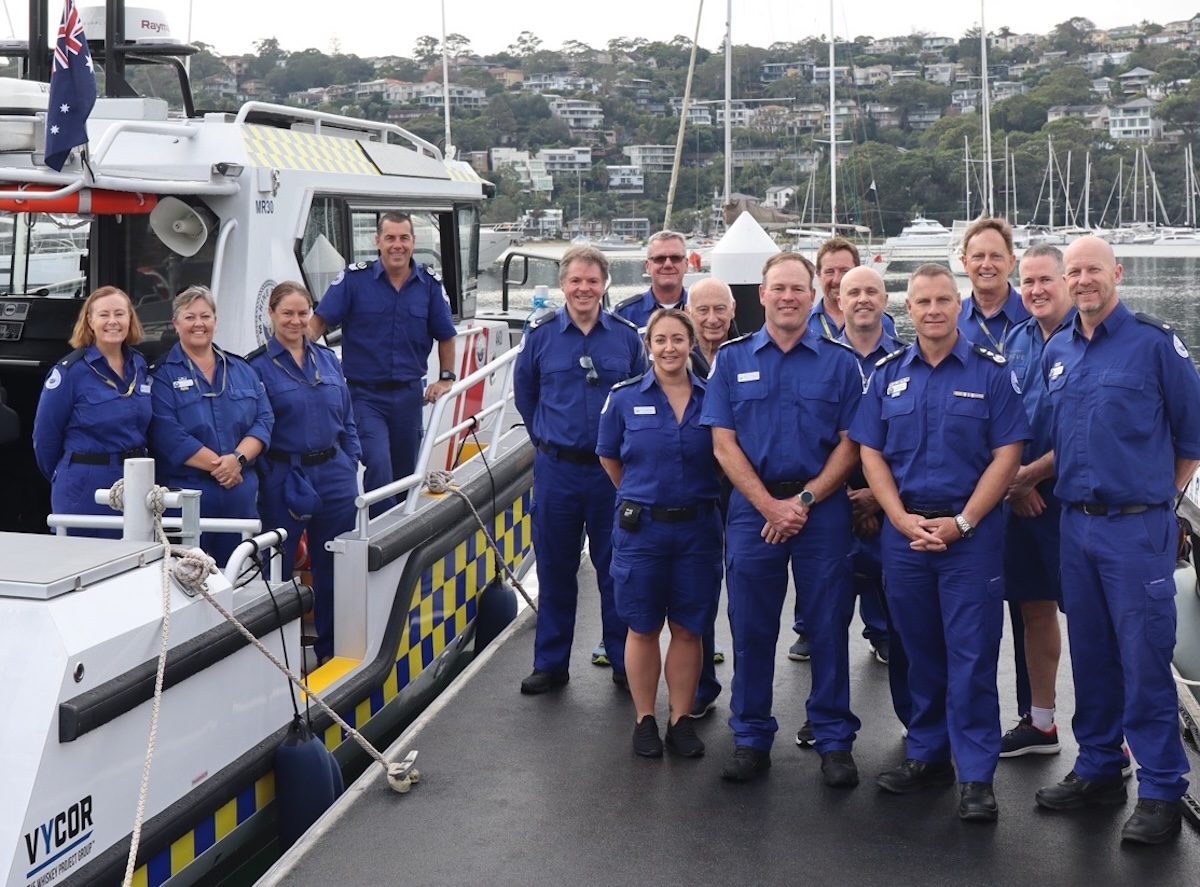
Alex Barrell with volunteers from Middle Harbour, Port Jackson, Lake Macquarie and staff at Middle Harbour
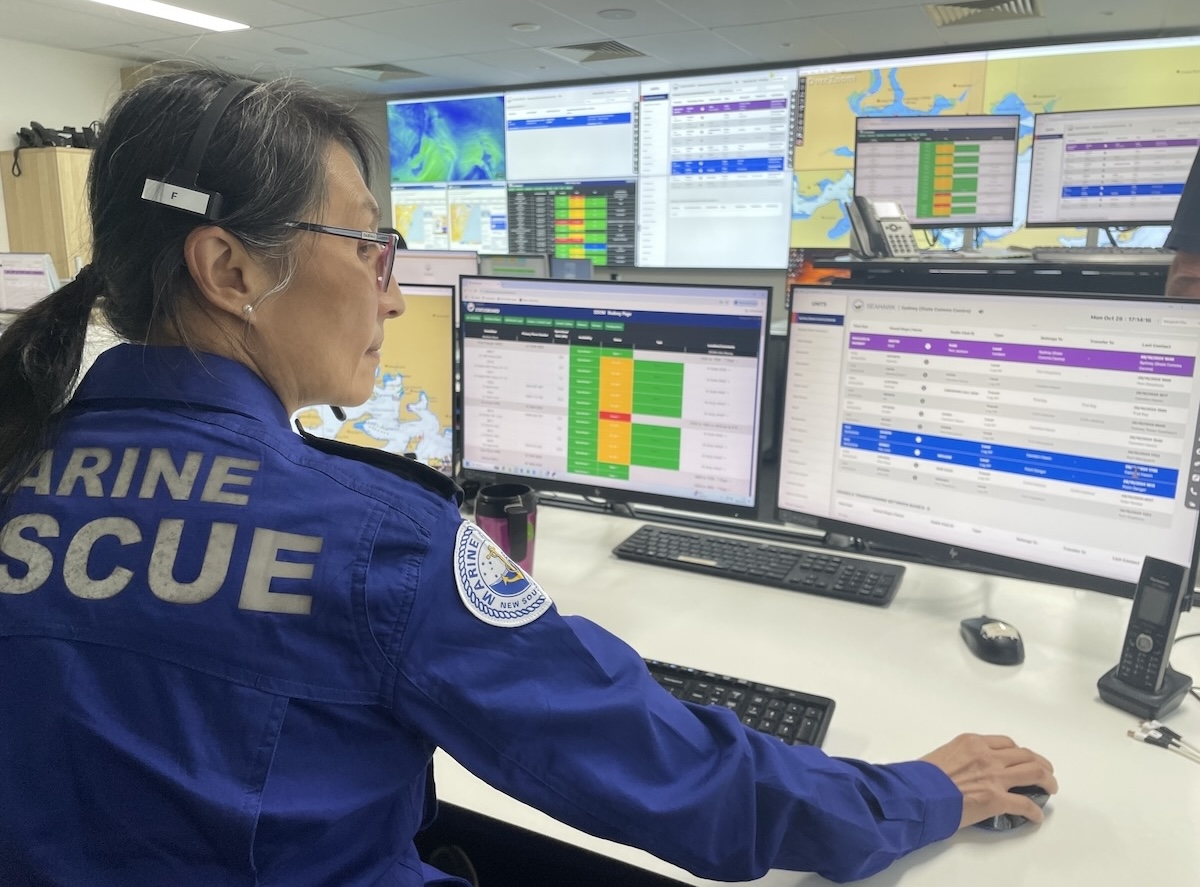
Radio Operators are on shift 24-7 at the Marine Rescue Sydney State Communications Centre at Belrose
As the only Australian trustee on the IMRF board, what global SAR trends or innovations are most exciting or relevant for Australia?
We can certainly learn a lot around technology and training. Improvement will make us all better at what we do, saving lives on the water.
What do you see as the biggest challenges and opportunities for the maritime SAR sector in the next five years?
Support for the volunteer organisations around Australia. The value that the sector provides local communities, the boating sector and government is immense and needs to be recognised. Maintaining strong partnerships across national, state and local arrangements is key, and making sure as a sector we remain agile to the new technologies and the human resource challenges that will come our way.
Finally, what message would you like to share with the broader SAR community – especially the volunteers – about their role in building a safer maritime future?
We should be proud of the work we do, we should recognise that Australia is a leader in this area and we have very strong arrangements led by the Australian Maritime Safety Authority, support by our Police and volunteers.
We are extremely lucky at Marine Rescue NSW to have so many dedicated highly trained volunteers that are prepared to give up their time to save lives on the water which ultimately makes our waterways a safer place for everyone.
The Women in SAR training course has now filled. For information about getting involved with the IMRF Regional Seminar visit https://www.marinerescuensw.com.au/imrf-regional-seminar/






